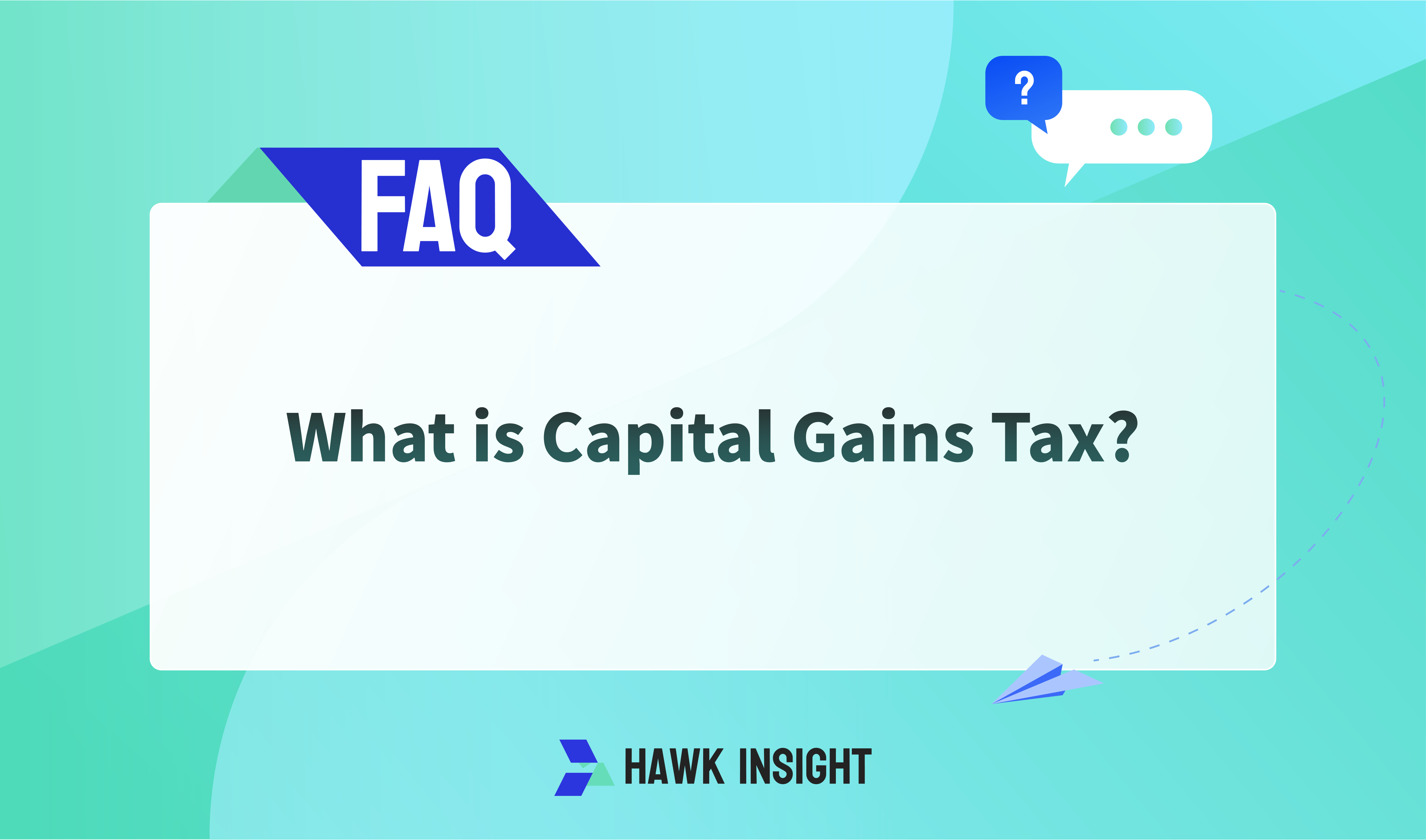What is Capital Gains Tax?
Capital gains tax is a tax on the profit made from the sale of an asset (e.g.stock, property).

Capital gains tax is a mandatory fee imposed by the government on individuals or businesses when they sell assets such as stocks or real estate. When investors profit from an asset, it's essential to understand the tax implications.
Calculation of Capital Gains Tax
Calculating capital gains tax is relatively straightforward. If an investor sells a capital asset (like stocks, bonds, or real estate) for more than its purchase price, they may realize a capital gain. It’s important to note that transaction commissions and fees should be included in the cost basis. If the asset is held for less than one year, taxes are owed at the ordinary income tax rate; if held for over a year, the tax rate ranges from 0% to 20%, depending on annual income.
Classification of Capital Gains Tax
Capital gains tax is classified into short-term and long-term categories. Short-term capital gains refer to profits from assets held for less than one year and are taxed at ordinary income rates. For example, if an investor falls within the 24% federal tax bracket, they will pay this rate when selling short-term assets. Long-term capital gains, which come from assets held for more than one year, typically enjoy lower tax rates. Depending on the investor's income tax bracket, long-term capital gains tax rates are 0%, 15%, or 20%.
Short-Term Capital Gains Tax:
- Held for less than one year and taxed at ordinary income rates.
- Rates for 2022 and 2023 are as follows:
- 10%: $0 to $10,275 (2022), $0 to $11,000 (2023)
- 12%: $10,276 to $41,775 (2022), $11,001 to $44,725 (2023)
- 22%: $41,776 to $89,075 (2022), $44,726 to $95,375 (2023)
- And so on.
Long-Term Capital Gains Tax:
- Held for more than one year, with lower tax rates.
- Rates for 2022 and 2023 are as follows:
- 0%: $0 to $41,675 (2022), $0 to $44,625 (2023)
- 15%: $41,676 to $459,750 (2022), $44,626 to $492,300 (2023)
- 20%: $459,751 and above (2022 and 2023).
Property Sales Tax
If a single individual sells their primary residence and profits do not exceed $250,000 (or $500,000 for married individuals), they may qualify for a tax exemption. This exemption does not apply if the property is an investment property, if the individual lives overseas, or if they have not lived in or owned the property for two years within the five years preceding the sale.
Strategies to Reduce Capital Gains Tax
-
Gifts: Family members can gift assets up to $15,000 annually, with married couples allowed to gift up to $30,000, which helps lower the overall tax burden.
-
Loss Offsetting: Investors with capital losses in the current or previous years can use these losses to offset capital gains tax.
-
Long-Term Holding: Holding assets for over a year can significantly reduce capital gains tax liability, and investors should consider this strategy within their overall investment plan.
For personalized advice, please consult a tax professional.
·Original
Disclaimer: The views in this article are from the original Creator and do not represent the views or position of Hawk Insight. The content of the article is for reference, communication and learning only, and does not constitute investment advice. If it involves copyright issues, please contact us for deletion.